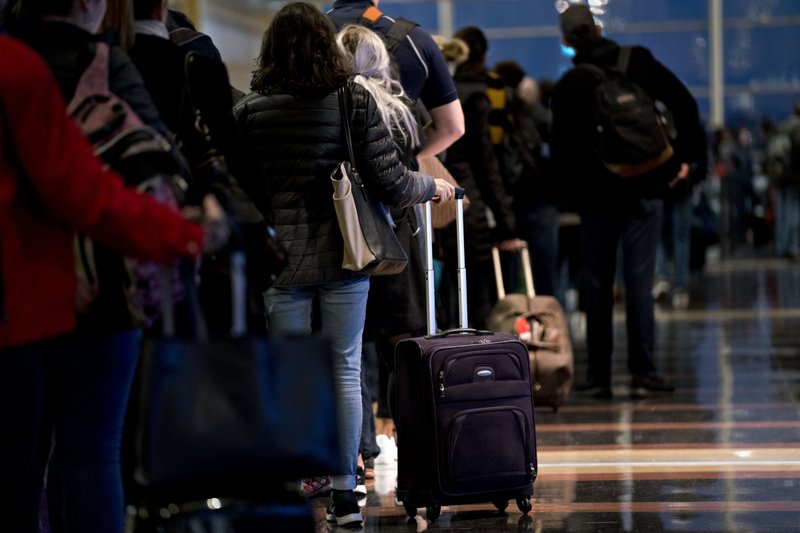WASHINGTON -- The return of divided government has some passenger-rights advocates hoping that federal transportation officials will take a more aggressive posture on policing airlines.
Some advocates say they have seen a relaxation of enforcement actions against the industry since 2016 that reflects President Donald Trump's administration's deregulatory stance.
"We hope that with the new Congress going forward, we may be able to require more of the department," said Andrew Appelbaum, a staff attorney at FlyersRights.org. "The Department of Transportation is really the only remedy passengers have."
His group has pressed the department and the Federal Aviation Administration on a host of consumer-related air travel issues, such as setting minimum seating standards to ease cabin crowding. The advocacy group also has sought, using the Freedom of Information Act, to find out exactly how the federal government has responded to complaints of mistreatment filed against airlines.
The government can levy fines as part of its enforcement action, but these have dwindled, advocates say. A report earlier this month by Travelers United says the Transportation Department's Aviation Consumer Protection Division was on a pace to issue the lowest number of fines in a decade: only 16 consent orders totaling $1.8 million in 2018, compared with $3.1 million in 2017. The site pointed out that the department issued more than twice that amount in 2016.
"The [department] has turned its back on complaints that most Americans find meritorious," Ben Edelman, a Harvard Business School professor and aviation rights activist, was quoted as saying.
But Applebaum said the department has a history of leniency toward airlines, even in egregious cases such as when a United Airlines passenger was forcibly dragged off a plane in April 2017.
"We've concluded that the Department of Transportation has declined to enforce regulations and institute penalties with violations," Appelbaum said.
In the United case, the department found that the airline had failed to provide the correct amount of financial compensation to one of the five passengers bumped that day but later paid the correct amount, according to a letter to the airline from the department's general counsel.
The department also found that the airline failed to give the proper written notice of rights to the passenger forcibly dragged off the plane -- but the agency said that was because the passenger left the airport immediately to seek medical treatment for injuries he suffered when security officers pulled him off the plane. The May 12, 2017, letter says the agency otherwise found no reason to take enforcement action.
Emails seeking comment from the Transportation Department were returned with notices saying press office employees were off duty. In the past, however, the department has said that the agency looks into every complaint with care and takes action where the complaints have merit.
Passenger-rights groups say even in the best of times, the department's fines have been little more than flea bites compared with the airlines' financial might. U.S. carriers earned net profits of $3.8 billion in just the third quarter of 2018, compared with $3.7 billion in the same period of 2017, the Bureau of Transportation Statistics said.
"The fine amounts are not a sufficient disciplinary measure," Appelbaum said. "And in almost every case, the department will only fine half the stated amount."
An email seeking comment from Airlines for America, the industry's advocacy group, wasn't immediately returned.
SundayMonday Business on 01/13/2019
